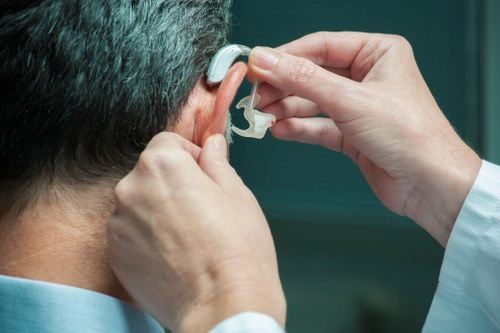Can Hearing Loss Really Affect Overall Health?
By Jacquie Elcox
 Then, there’s the follow-up question: How early should treatment begin? With today’s advanced diagnostic testing, hearing loss can be detected at the earliest stages – when treatment is most important.
Then, there’s the follow-up question: How early should treatment begin? With today’s advanced diagnostic testing, hearing loss can be detected at the earliest stages – when treatment is most important.
The American Academy of Audiology (AAA), American Speech-Language-Hearing Association (ASHA) and American Medical Association (AMA) each consider hearing screenings as early as 50 important for your overall health. Our motto is, “Ears and Rears at 50!”
The impact of hearing loss on the brain can be detrimental – yet possibly reversible and avoidable if treated early. Even if a problem is not perceptible treatment of hearing problems need to begin as soon as they arise.
Hearing loss, even at a mild stage, can be a serious problem. It can significantly increase the risks of developing cognitive decline, depression, social isolation and dementia and increase your risk of falling.
A recent report (The Lancet, July 2017) found that early treatment of hearing loss is the single most effective modifiable factor for the prevention of dementia.
Even in your 50’s there is a significant chance you may require treatment of hearing loss. As we age, the chances increase: nearly 50% of all seniors between 60-70 years young will experience hearing loss, almost 2/3 of people between 70-80 years young, and practically 80% of people aged 80 and higher.
Initial symptoms that may be experienced:
Difficulty following a conversation in background noise (e.g. in a restaurant)
Tinnitus (ringing in the ears)
Decreased social interaction with others
Increased television volume
Development of depression





